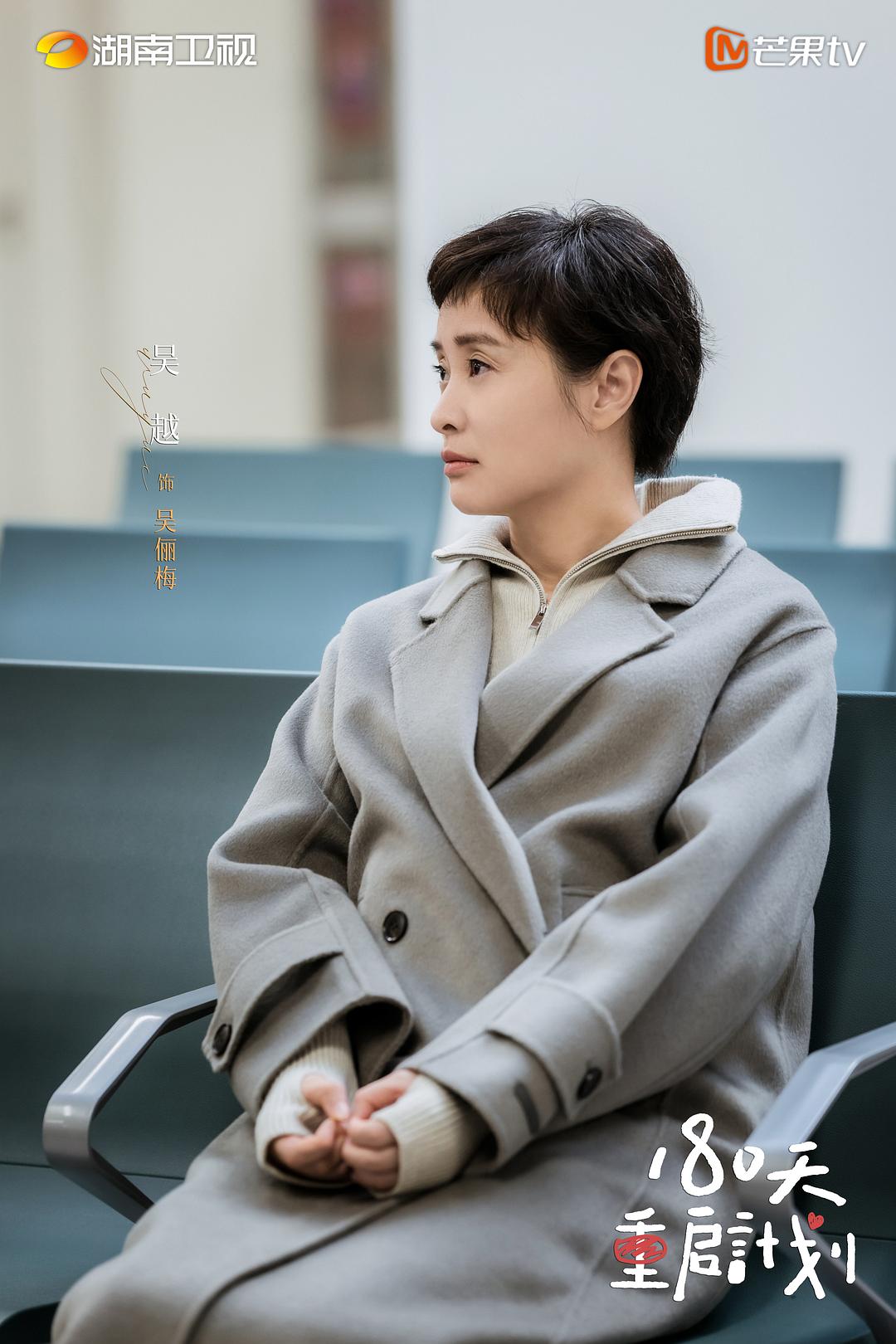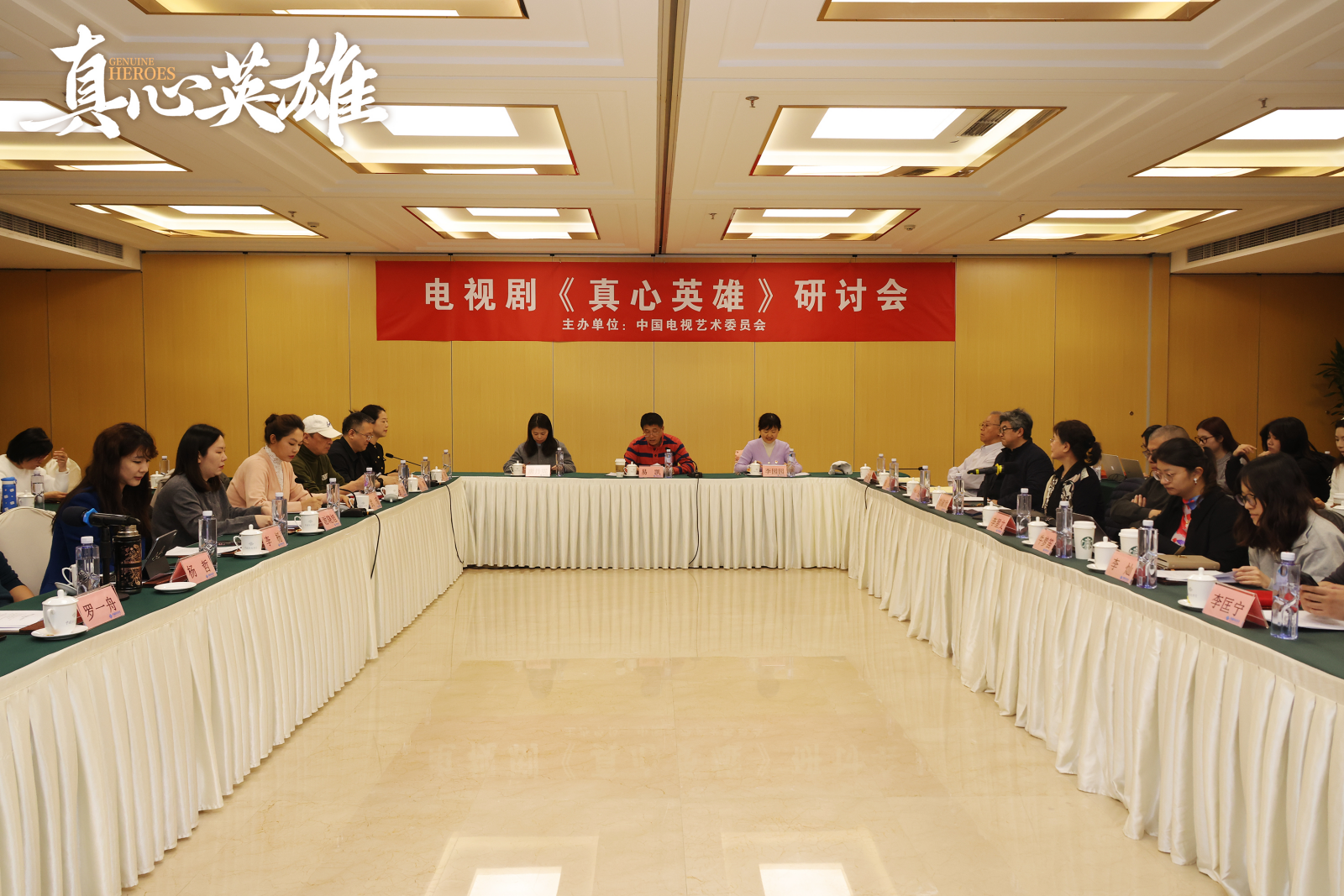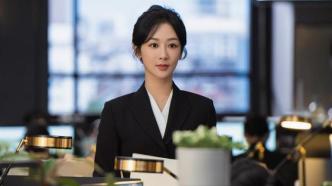
In recent years, there has been a boom in film and television adaptations of Yi Shu's novels, including the already aired dramas "My First Half of Life" and "The Best Years", the movie "Xipo", the currently popular "Chenghuan Ji", and the already completed "The Story of Rose".
However, film and television adaptations of Yi Shu's novels are not an easy task. So far, no works have been recognized by fans of the original novels. Douban scores for My First Half of Life and My Best Friend's Days are both 6.4 points, and Xibao is 3.3 points. The ratings for The Story of Joy have not yet been released, but the controversy surrounding this drama can be seen from the comments section.
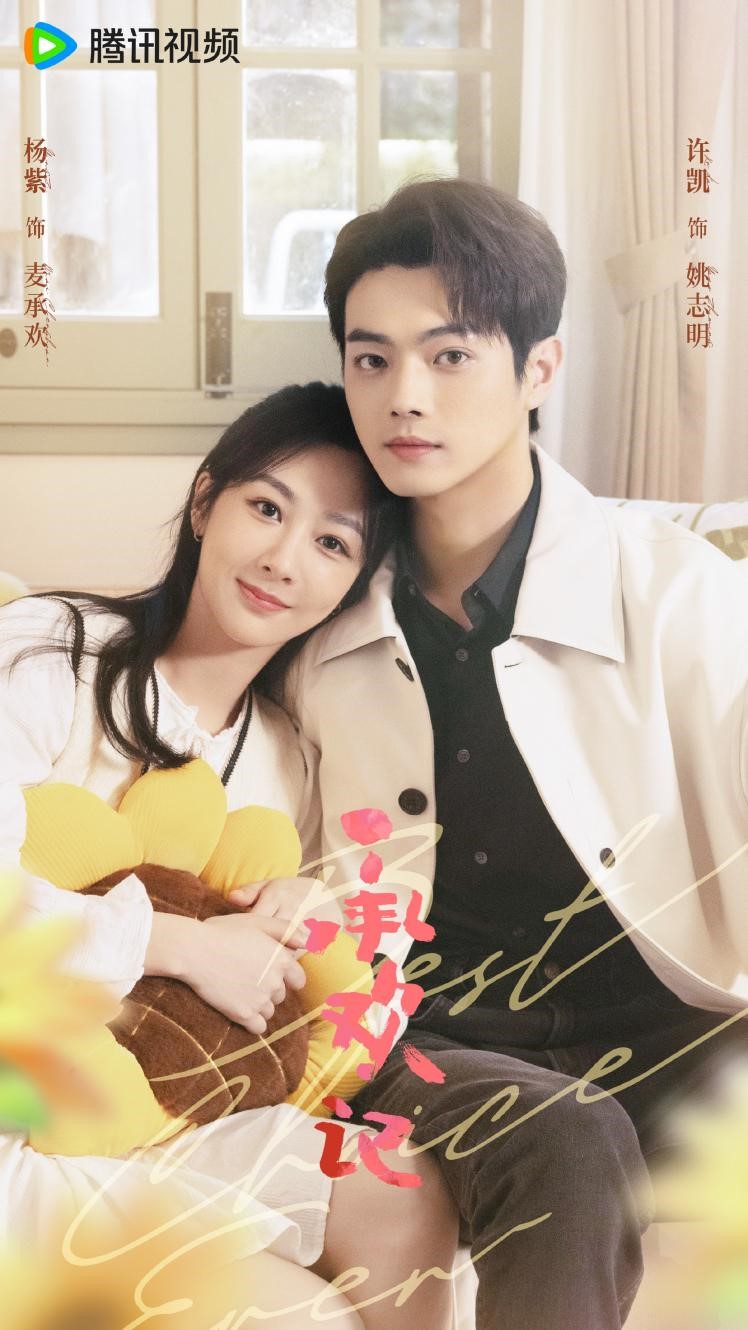
Poster of "The Story of Joy"
The novel "Cheng Huan Ji" was published in 1996. Although it was written nearly 30 years ago, it is still not outdated today. The novel tells the story of Mai Cheng Huan, a female protagonist from the working class in Hong Kong. She was about to get married, but her marriage fell through due to her mother's interference, the huge class difference between her and her fiancé Sin Ka-leung's families, and Mai Cheng Huan's unexpected inheritance. Mai Cheng Huan gradually stepped out of the "shadow" and lived an ideal independent life.
The drama "Cheng Huan Ji" moves the story to present-day Shanghai, continuing the general framework of the story, but making many changes in the setting, plot, and character relationships.
For example, the mother-daughter relationship in the novel is very delicate. Mrs. Mai, who places all her hopes on her daughter, certainly hopes that her daughter will marry well, but she also has many selfish motives: control over her daughter and hidden jealousy of her daughter. This unconventional and meaningful mother-daughter relationship is shown in many domestic art films focusing on mother-daughter relationships, such as "A History of Tenderness" and "Send Me to the Clouds", but it is rarely shown in mainstream and popular TV dramas - the positive mother in the mainstream stereotype can only be "selfless", even if she has a terrible desire to control her daughter, it is only because the way of love is wrong, not because there is jealousy in her love.
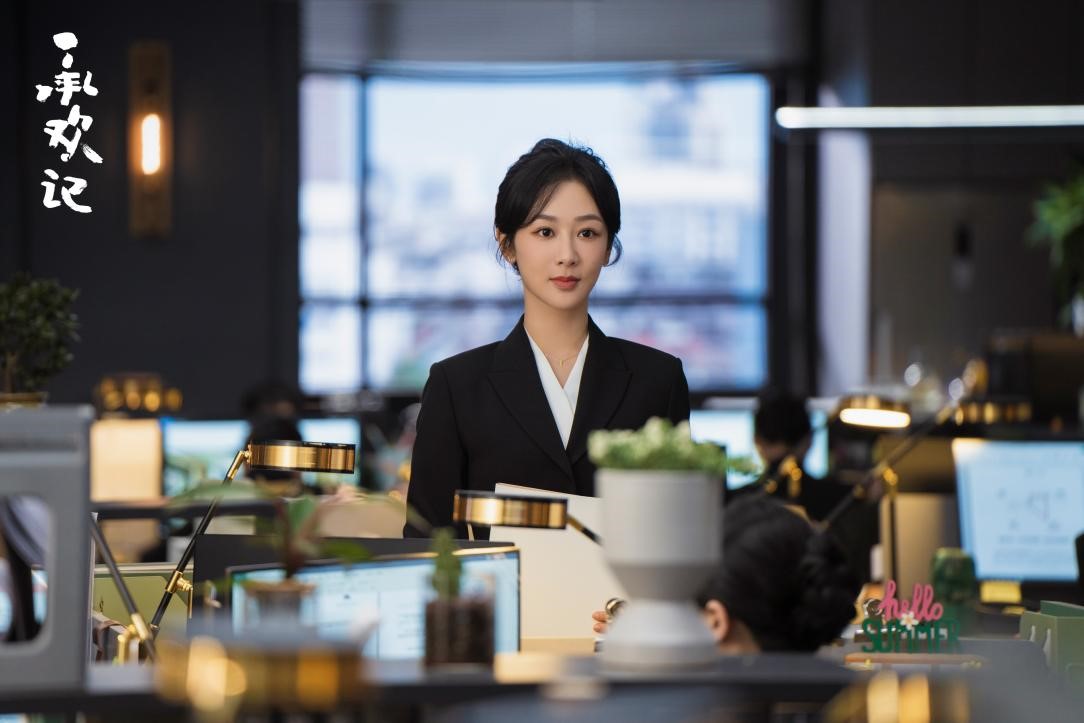
Mai Chenghuan (played by Yang Zi)
The TV series "Cheng Huan Ji" continues the writing style of traditional family ethics dramas. Liu Wanyu (played by He Saifei) is a typical "Chinese mother" who inevitably interferes with every aspect of her daughter Mai Cheng Huan (played by Yang Zi), but her love for her daughter is selfless and pure. Mai Cheng Huan is caught in a dilemma between "being in my arms" and "enjoying life to the fullest".
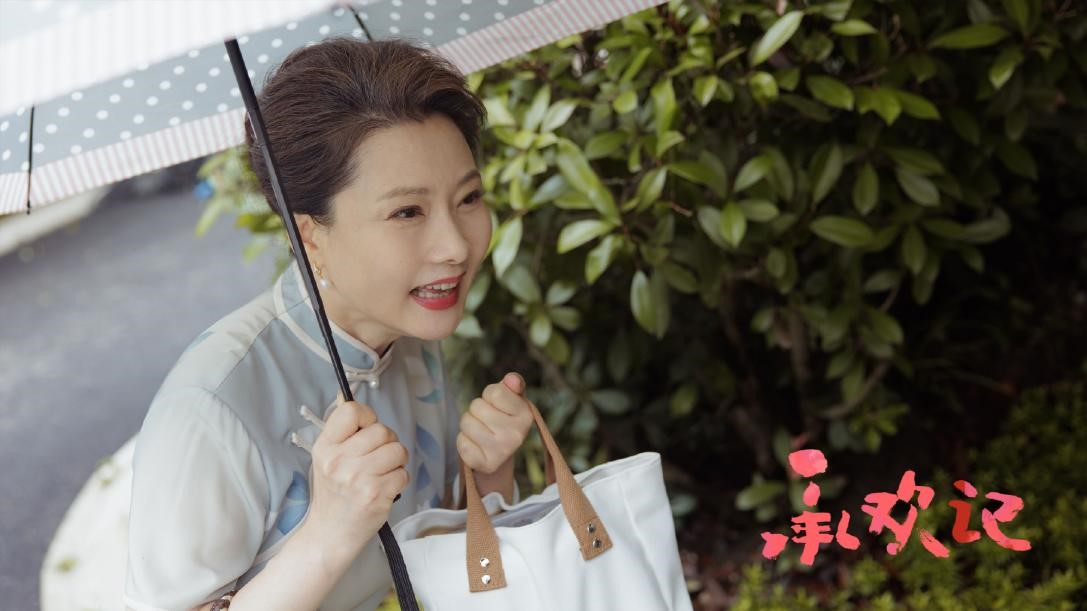
Liu Wanyu (played by He Saifei)
In the novel, Xin Jialiang's identity as a "rich second generation" was known to Mai Chenghuan's family long ago. In the drama, it was changed to Xin Jialiang (played by Niu Junfeng) dating Mai Chenghuan for three years, and he had been hiding his "rich second generation" identity. In the novel, there is indeed a class gap between the Mai family and the Xin family, but it is not a tense situation. It is more of a conflict between wedding planning and the future direction of the small family. The adaptation in the drama fully dramatizes the class conflict and makes it a short video. For example, Mai Chenghuan's career changes from a civil servant to a hotel clerk. The workplace line becomes the focus of the drama and is intertwined with Mai Chenghuan's emotional line...
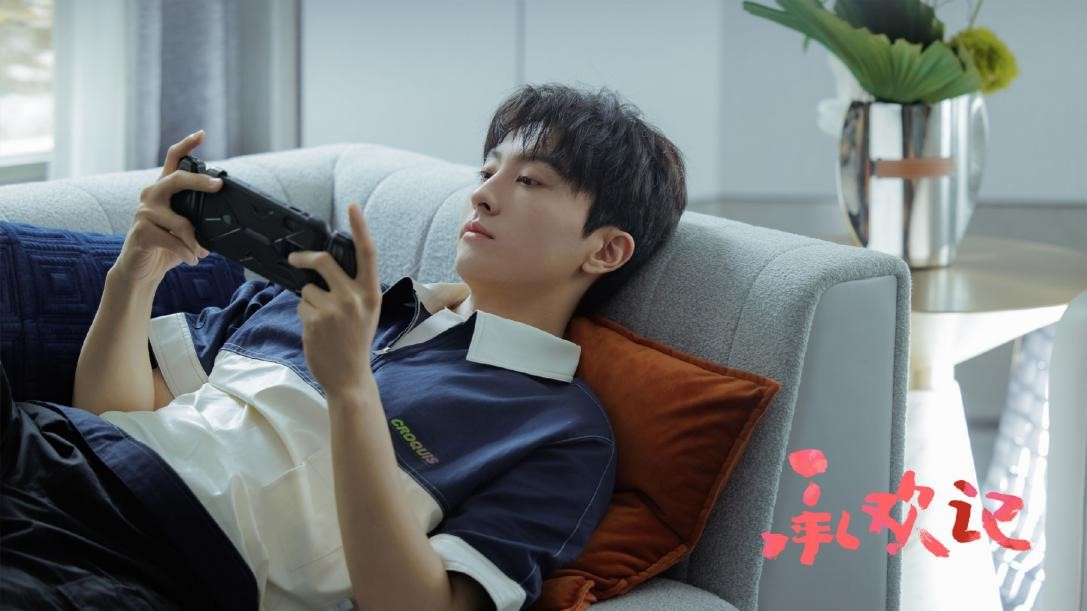
Xin Jialiang (played by Niu Junfeng) in the play is even less responsible than in the novel
These changes have inevitably been criticized by some fans of the original novel. In my opinion, these changes are still within an acceptable range. After all, Yi Shu's novel is just a thin volume. When adapted into a TV series with huge content, there must be various plot fillers. In order to attract audiences, urban dramas inevitably have to create various topics and intensify dramatic conflicts. In addition, due to external factors such as censorship, the dark side of human nature cannot be exposed too much, so some characters may be adjusted.
The adaptation of "Cheng Huan Ji", including the previous "My First Half of Life" and "The Golden Years", has caused controversy due to the TV series' rewriting of the image of "Yi Shu Girl".
"Yi Shu Girls" is a concentrated representation of the female characters in Yi Shu's many works and is the core asset of Yi Shu's novels.
Yi Shu girls are independent professional women. "Economic independence, never ask for help", they pursue career success, can live independently, and do not rely on men for financial support.
Even though they were born in the common people, Yi Shu girls are wise and well-educated. They are well-educated, have high cultural literacy and insights, are elegant in conversation, and have sharp minds. When faced with complex problems in life, they can analyze calmly, respond rationally, and make decisions quickly in difficult situations.
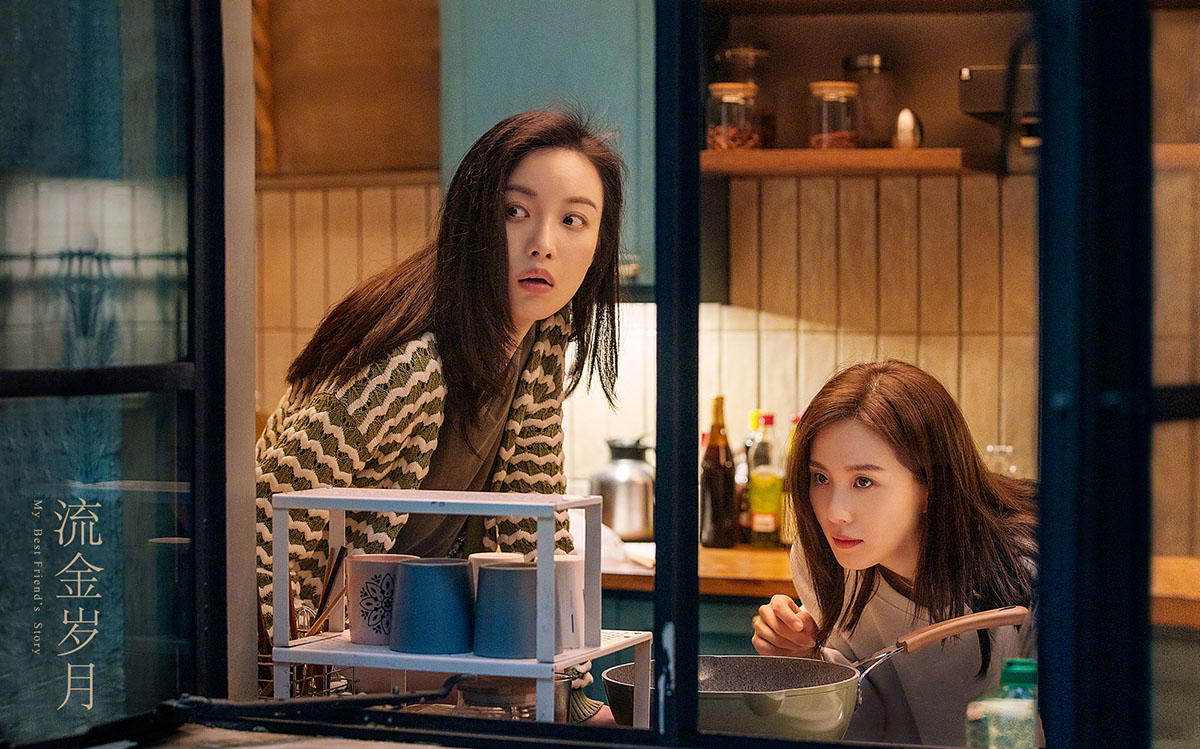
Stills from The Best Years, Ni Ni (left) plays Zhu Suosuo, Liu Shishi plays Jiang Nansun
Yi Shu girls have good taste and are elegant and decent. They often match basic items such as classic white shirts, khaki pants, windbreakers, etc., emphasizing comfort and naturalness, rejecting exaggeration and excessive decoration, and being simple but not simplistic.
In terms of the view on love, Yi Shu girls are rational and free and easy. They do not indulge in it, know how to withdraw at the right time, are not trapped by broken love or failed marriages, maintain their dignity, and are neither humble nor arrogant.
Yi Shu's novels were mainly written between the 1970s and 1990s, when Hong Kong's economy was booming and transforming from a manufacturing center to an international financial, trade and service center. Women, as an important labor force, entered society to participate in production, and personal struggle became the mainstream value. As long as you are willing to work hard, everything is possible. The whole society is full of self-confidence, pride, and positive spirit. Yi Shu girls are a vivid product of this era.
With economic independence, Hong Kong women have undergone profound changes in social roles, marriage concepts, and childbearing choices. The issues faced by Yi Shu Girls, such as women's autonomy, freedom of marriage and love, and balance between career and family, are not only a reflection of the improvement of women's social status in the context of Hong Kong's economic development, but also a literary response to the issue of gender equality in society at that time.
The popularity of Yi Shu's novels in mainland China has only begun since the new century, which is also closely related to the economic development environment of the mainland. With the rapid economic development and accelerated urbanization, a large middle-class group has formed in the mainland. They are well-educated, have high consumption power and aesthetic needs. The modern urban life, professional women's struggle stories and in-depth exploration of emotions depicted in Yi Shu's novels are in line with the psychological expectations and life experiences of this emerging reader group. Yi Shu girls have "enlightened" many highly educated women in the mainland.
However, there are almost no TV dramas in mainland China that truly restore the image of Yi Shu girls.
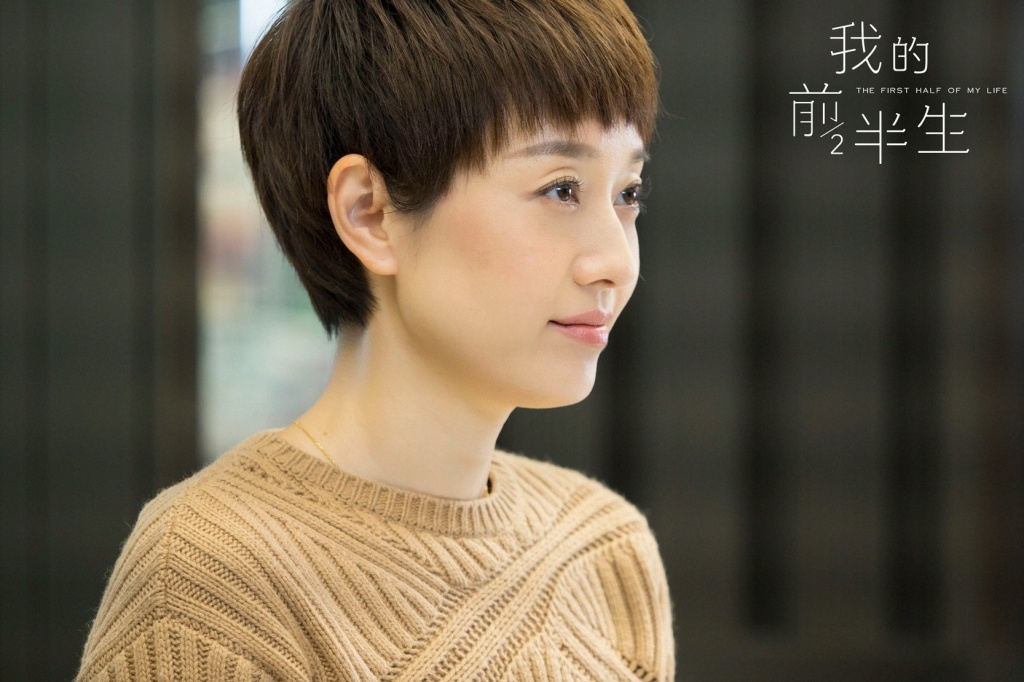
Stills from My First Half of Life, Ma Yili as Luo Zijun
In the once sensational "My First Half of Life", Ma Yili played Luo Zijun, who was once a very arrogant person and pestered for divorce, crying, making a fuss and even threatening to hang herself; in the novel, Zijun was decisive in facing her husband's cowardice, "What's the point of having a man like this? I still have a pair of hands, and I still have a future. Another woman may not be happy if she gets him. He can be so heartless and abandon his wife of more than ten years, and he may do it again in the future." So she said to her husband, "Okay, I promise you, I will divorce you immediately." Yi Shu girls are always "good-looking".
Mai Chenghuan in the TV series "Cheng Huan Ji" is fortunately not "magically changed" like Zijun. She still has some "good-looking" attitudes - independent and not dependent. For example, when Xin Jialiang said "I will support you", Mai Chenghuan responded: "If you keep your palms facing up for one day, it's cute, coquettish, and interesting. If you keep your palms facing up for ten years, it will become a horror story."
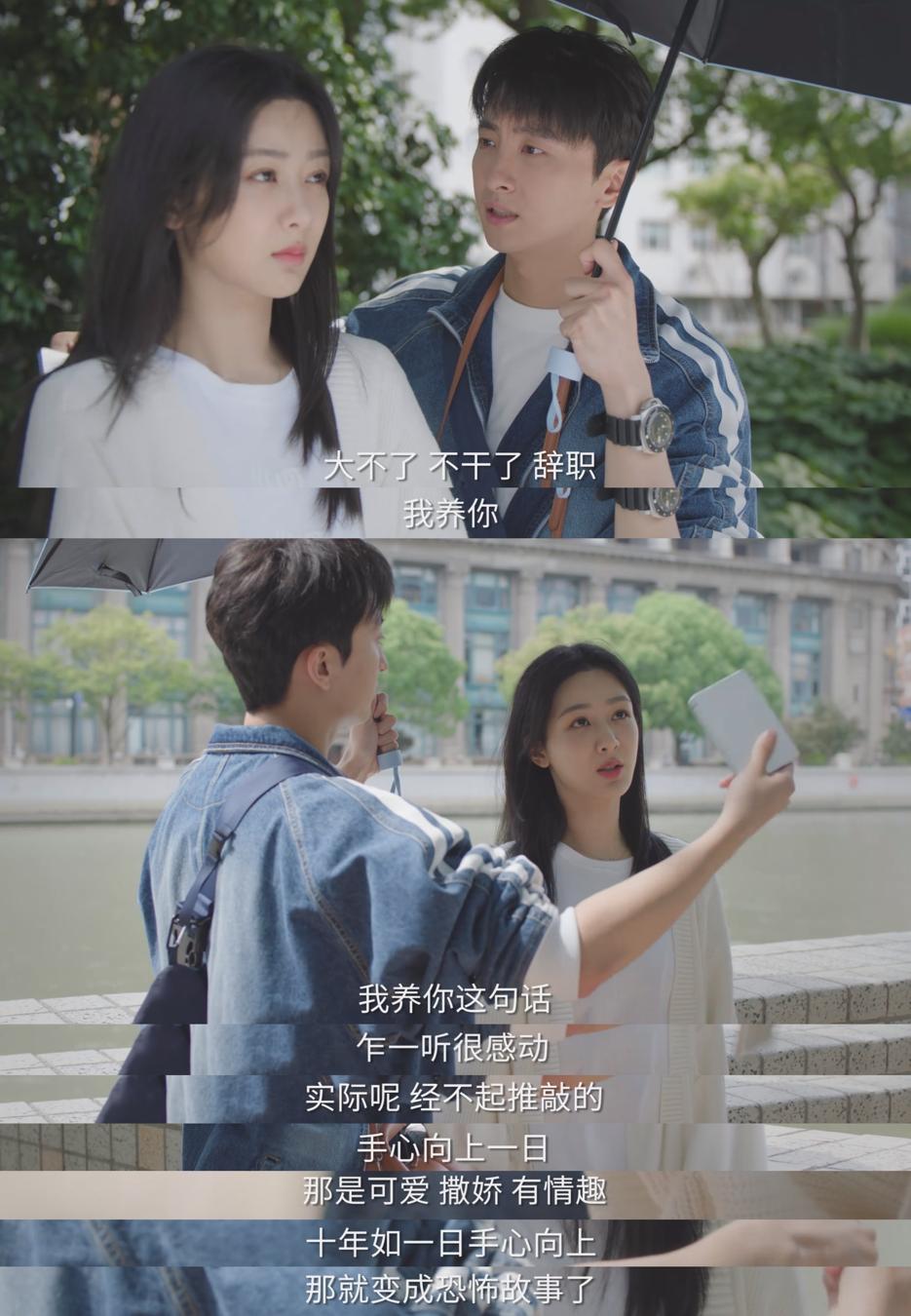
Mai Chenghuan is financially independent
For example, when Mai Cheng Huan was working overtime, her mother called and told her not to work so hard and to get married. Mai Cheng Huan disagreed: "Mom, getting married is not as reliable as having your own abilities. How can you rely on others in life and expect to be respected by others? "
When the parents of both parties met for dinner, Xin Jialiang's sister made all kinds of sarcastic remarks about the Mai family. Mai Chenghuan slammed the table and said, "We don't have to eat this meal, and we don't have to get married!"
When the man's family went too far and insulted and belittled Mai Chenghuan's family, Mai Chenghuan said in a loud voice: "You can look down on me, you can despise me, but you can't insult my family, you can't insult my mother. I, Mai Chenghuan, will not let them suffer any grievances because of me, no matter how much I love someone." Mai Chenghuan broke up with Xin Jialiang immediately.
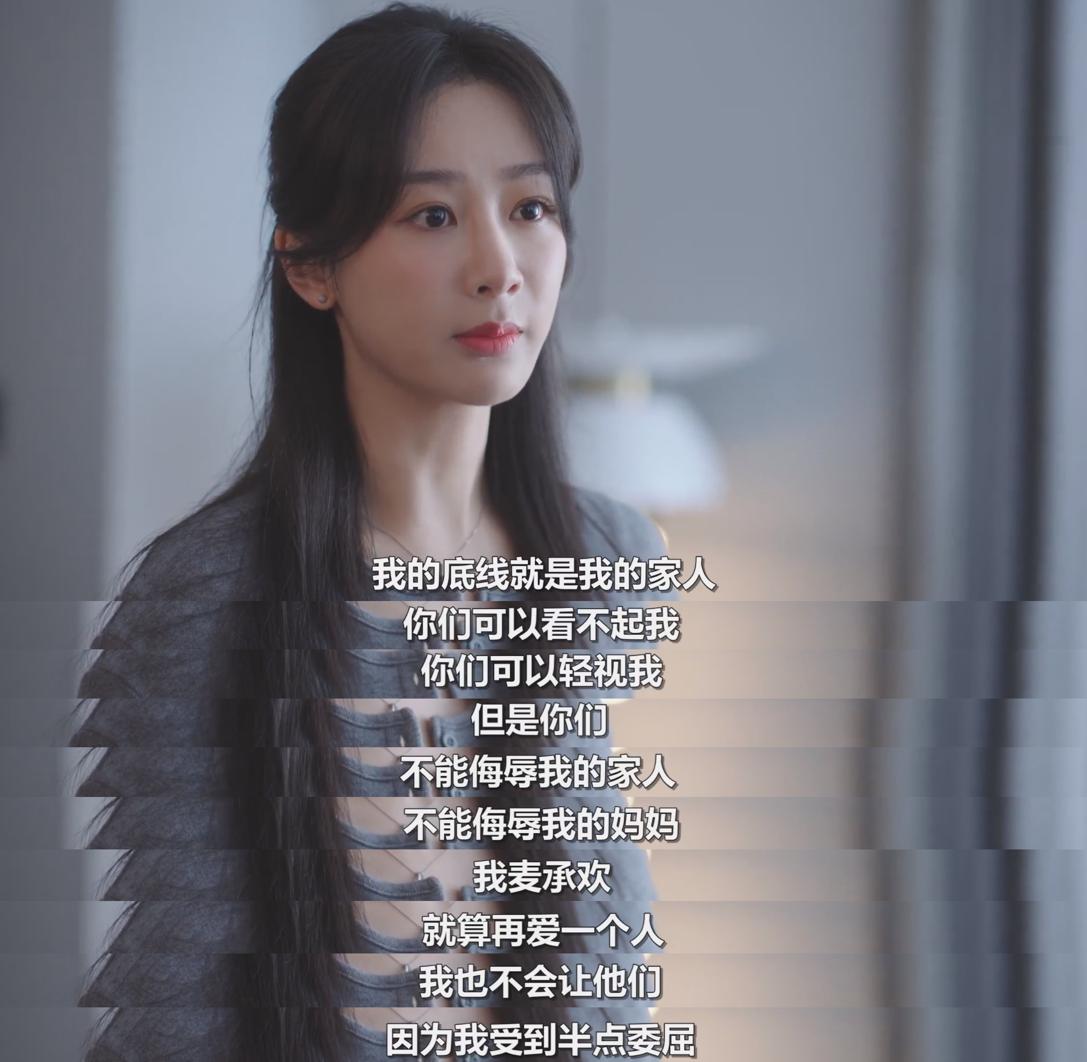
Mai Chenghuan defended his mother and broke up with Xin Jialiang because of this
So, how exactly did Mai Chenghuan in the play "deviate" from the Yi Shu girl?
Basically, it is about the view of love and the relationship between the sexes. Yi Shu girls are generally "bystanders" of love, and they can withdraw at any time. There are famous sayings in "Xibao", "I want a lot of love. If there is no love, then I will have a lot of money." "I came to the society with nothing. If I don't step on others to death, others will step on me to death. People are not doing things for themselves. I would rather he die than I die." There are some perfect male characters in Yi Shu's novels, and there is also idealized love, but the overall tone is a pessimistic view of men and love.
Mai Chenghuan in the novel never thought that love was everything in life. Even when she fell in love with Xin Jialiang, she would not lose herself. She examined emotional relationships rationally and made decisions based on realistic considerations and long-term planning. When she found that her relationship with Xin Jialiang was not so suitable, she calmly accepted the end of this relationship and decisively cut her losses, "If I want to start over, I might as well start over." She did not suffer from the pain of a broken heart. The novel wrote, "Mai Chenghuan was radiant. She did not look like she had just broken off her engagement with her fiancé. She made big movements, held a beer glass, grinned, and her eyes narrowed into a line."
Unexpectedly receiving a generous inheritance, the single Mai Chenghuan began to let go of himself and indulge in sensual pleasures. Yao Zhiming (Xu Kai), the male lead in the TV series, appeared belatedly after 80% of the novel had been written. His appearance just suited Mai Chenghuan's style, so "both sides tacitly agreed to stop thinking about it and just have sex with each other physically".
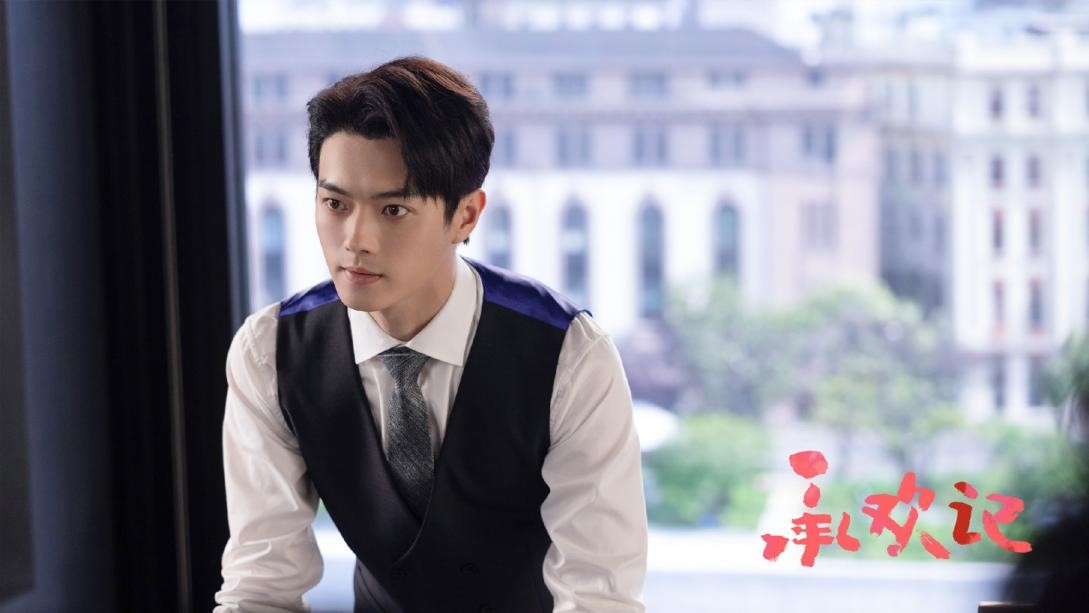
Yao Zhiming (Xu Kai), the male lead in the drama, appears near the end of the novel
The TV series's portrayal of Mai Chenghuan's view of love is not very "Yi Shu girl". Even though Mai Chenghuan will have a gradual growth process, the long "first depression" in the play no longer has the flavor of Yi Shu.
Mai Chenghuan in the play is like many heroines in idol dramas: she devotes herself to love - she once sacrifices herself for love, and finally gets a dream love - the male protagonist is tall, handsome and loves her.
For example, when Mai Chenghuan and Xin Jialiang were in love, she was more like Xin Jialiang's "mother" or "nanny", taking care of Xin Jialiang in every aspect. Mai Chenghuan's best friend Mao Yongxin (played by Xu Lingyue) took out the bag that Mai Chenghuan carried with her and found that it was basically filled with things Mai Chenghuan prepared for Xin Jialiang: Xin Jialiang often forgot to charge his mobile phone, so Mai Chenghuan always carried a power bank with him, Xin Jialiang always easily got food on his body when eating, so Mai Chenghuan carried a stain remover pen with him, Xin Jialiang loved playing games, so Mai Chenghuan carried a Bluetooth headset with him, and Mai Chenghuan also had a small notebook to write down everything that Xin Jialiang couldn't remember... Mao Yongxin hit the nail on the head: "Does he treat you as an assistant? I feel like you are raising a son."
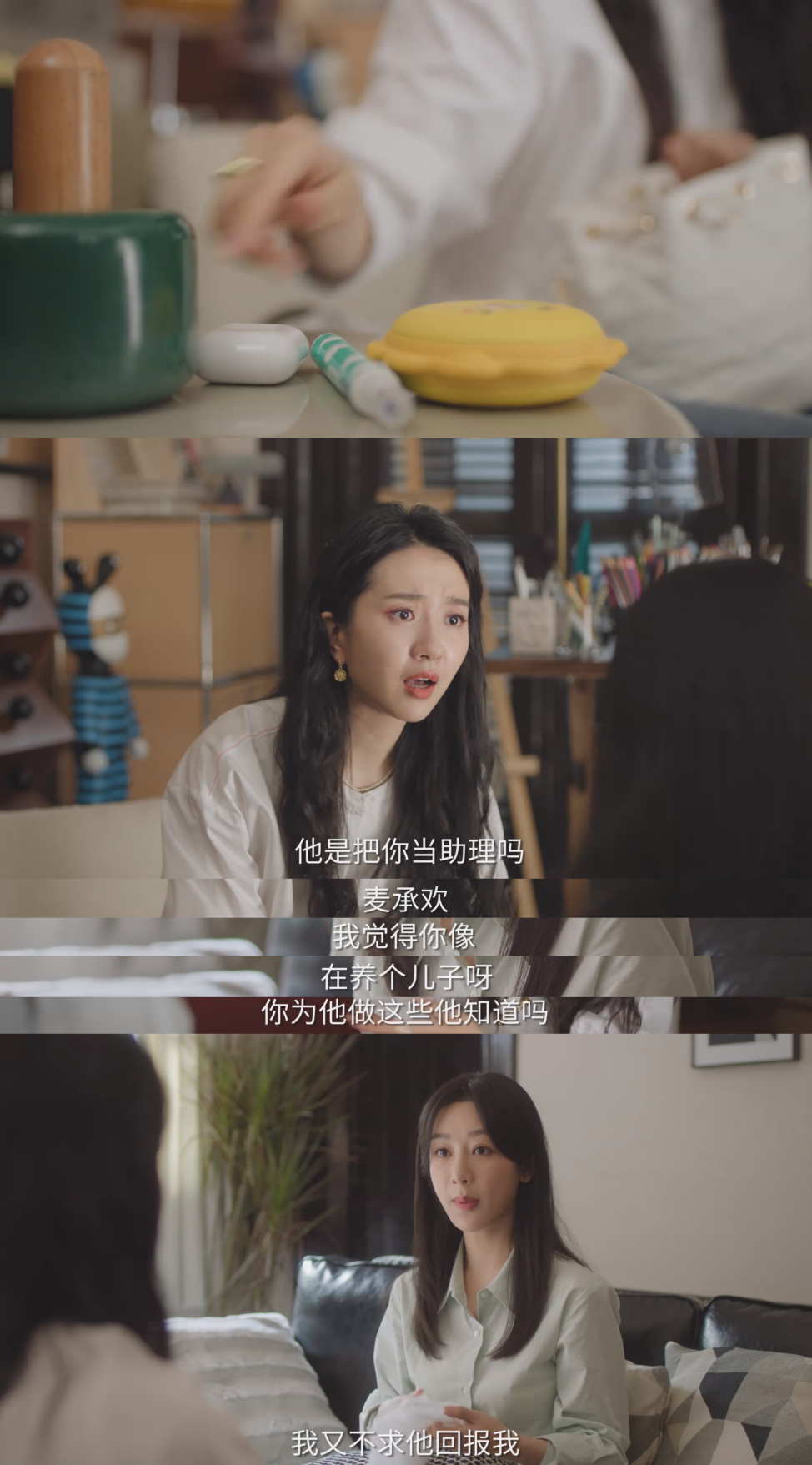
Mai Chenghuan's bag is filled with everything Xin Jialiang needs.
Not to mention that fans of the original novel cannot accept it, even in the original script, with such a female character - even if she thinks this is a "two-way journey", it is difficult for the audience to think that this is a mature attitude towards love.
Mai Chenghuan broke up with Xin Jialiang and fell into a state of heartbreak. She was distraught for a while and finally cried in front of her grandmother (played by Wu Yanshu). This is completely "contrary" to her in the novel.
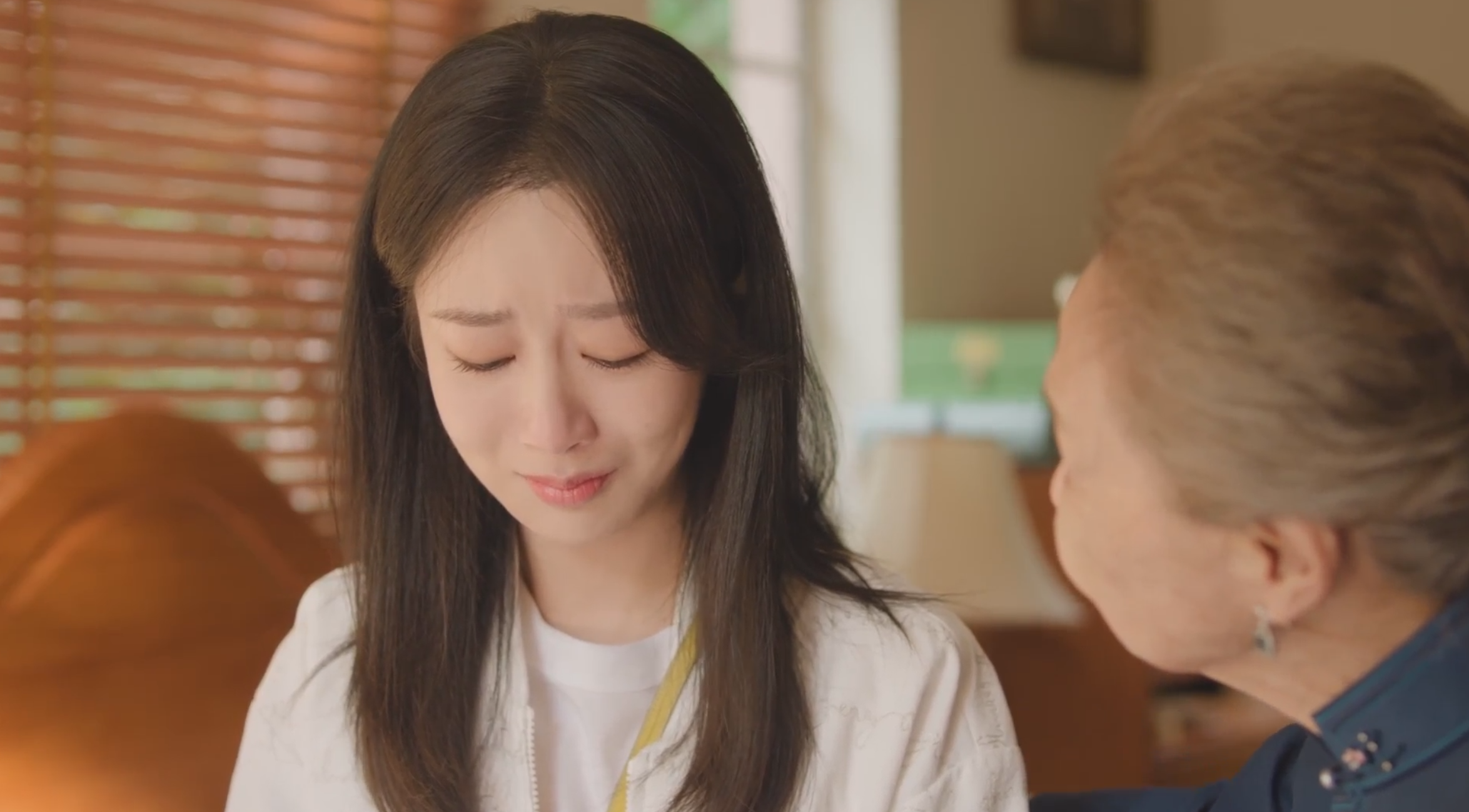
Mai Chenghuan is in the sadness of a broken heart
Mai Chenghuan gradually falls in love with Yao Zhiming. This relationship has nothing to do with the original novel. Yao Zhiming appears early in the play. As a domineering president, he and Mai Chenghuan play out a somewhat clichéd idol drama plot: the cold and arrogant president (unsurprisingly, he has childhood trauma) meets the kind and upright heroine; due to fate, they frequently come into contact at work and in life; the kind heroine influences the domineering president and gradually changes his dark and cold personality. The domineering president always appears on every occasion when the heroine has a dispute with her ex-boyfriend's family (it's just so coincidental that he always happens to meet), and gives timely advice, guidance, and help to the heroine; it is foreseeable that the two will have a relationship: help each other, understand each other, fall in love...

No matter what problems Cinderella encounters, the overbearing president will always help her solve them silently behind the scenes
Yi Shu girl, watching love from the sidelines, independent women can play with the world; in the drama "Mai Chenghuan", Mai Chenghuan goes around and around from one love affair to another idol drama-like love affair. The wisdom of Yi Shu girl is not distributed to Mai Chenghuan, but more of it is borne by Mai Chenghuan's best friend and grandmother.
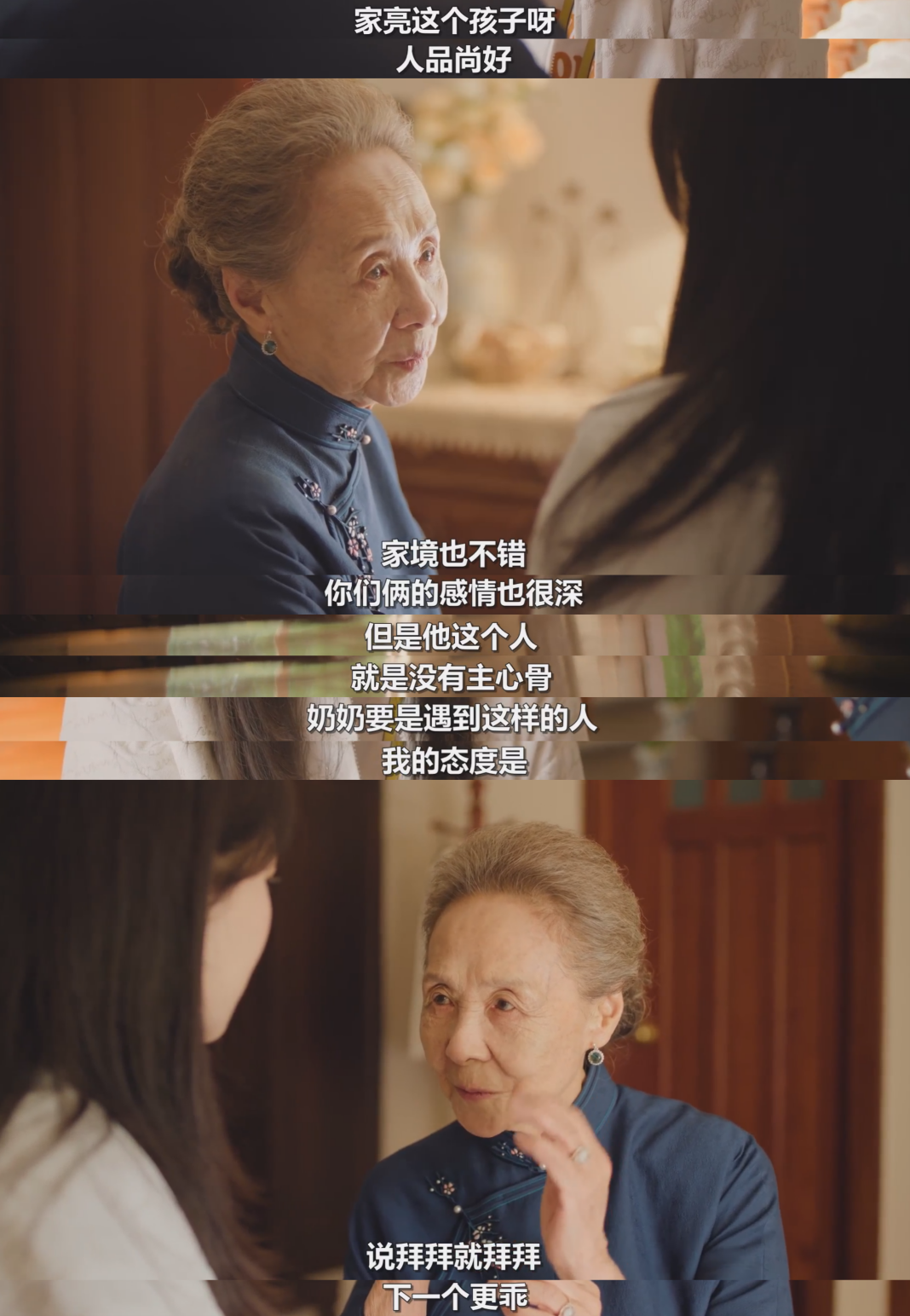
Grandma (played by Wu Yanshu) is the Yi Shu girl
The rewriting of the love story is also a common problem in "My First Half of Life" and "My Golden Years". The heavy emphasis on the love story in the TV series reflects the "compromise" of the drama to cater to the market - although the love story is routine, it is the eternal "donut" in the market. The price is that it has triggered a strong backlash from the original fans.
There are thousands of idol dramas, and everyone can watch them; contemporary urban women prefer Yi Shu because her works provide women with different marriage options: women show the ability to think independently and make decisions independently in marriage and love relationships, do not regard marriage as the only goal of life, will not easily fall into blind passion or overly romanticized love fantasies, and whether married or not, should not ignore self-growth and realization...
Although from the perspective of contemporary feminism, the independent women described by Yi Shu believe in the logic of neoliberalism and are essentially "admiring the strong" and "fearing the weak"; but no matter what, in a specific historical context, Yi Shu girls are a symbol of progress and have brought important "enlightenment" to many women.
Successful film and television adaptations of Yi Shu's works should be a continuation and "improvement" of Yi Shu Girl. The TV series "Cheng Huan Ji" itself is a good play, but it still wastes Yi Shu.
